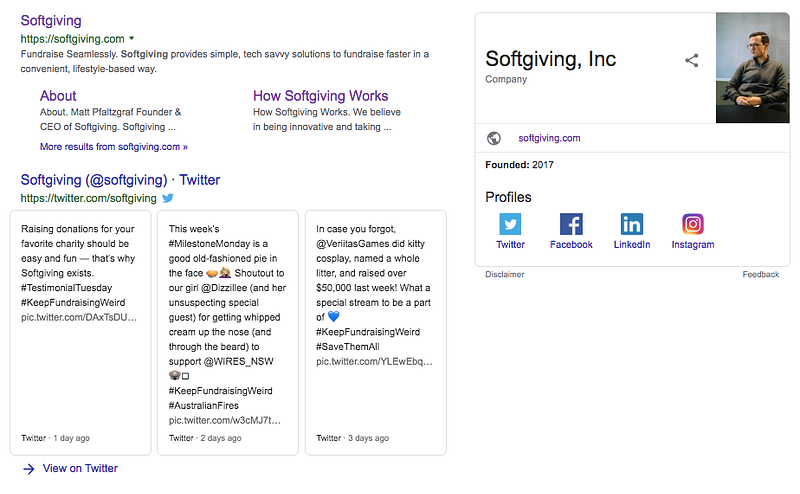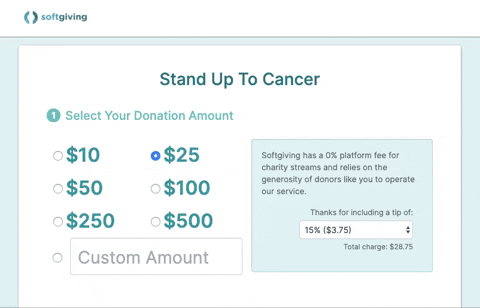Sometimes, people suck. Unfortunately, there are people in this world who try to take advantage of the kindness and generosity of others.
Thankfully, good tends to outweigh bad — and we’re here to help you distinguish between the two.
Here are five ways to confirm that an organization or fundraising platform is legit:
1. HTTPS / SSL certification ????
First things first: check the address bar.

A legitimate and secure website will have an “https://” prefix and show a closed padlock in the address bar.
The locked padlock means that the page you’re on is encrypted and secure. A secure donation page means you can rest easy knowing that your information (name, email, payment details, etc) is protected and can’t be traced.
If you don’t see the padlock symbol, it means your information is vulnerable and could potentially be stolen.
2. Donation page links back to the organization’s or fundraising platform’s website.
Is the donation page a static landing page with no links to a credible, secure website? Does it look like it was created in Microsoft Paint?
If so, it’s most likely not a legitimate donation page.
3. Credible online presence
Take a moment to search the organization or fundraising platform.
- Genuine online presence = good.
- News stories and interviews = good.
- Regular activity on social media = good.
- Several ways to contact them = good.
- Brand longevity = good.

It’s 2020… if there’s little to find online about them, that’s a red flag (um, Joe Goldberg anyone??)
If you notice that all of their posts are very recent — within the last few days, weeks, or even months — then it’s probably not a reliable organization.
4. Transparency
If you’re donating through a fundraising platform, a breakdown of their fees should be easily accessible.

Softgiving was the first charity streaming platform to have a 0% Platform Fee!
We rely on voluntary tips from donors (tips are an additional charge and are not deducted from the donation itself) to keep our site up and running 24/7, continue to help influencers fundraise for their favorite causes, and provide users with kick-ass customer support!
5. Donation receipt
Donors should receive a receipt for their charitable contribution that includes, at the very least, the amount you donated and the name of the organization you donated to.
Proof that your donation was successfully made should be sent to donors via email or snail mail — especially if the donation is tax-deductible!
Warning signs:
- The funds are going to an individual rather than an organization or a fundraising platform like Softgiving
- Domain or spelling is too similar to an officially promoted campaign (e.g., stopthefire vs stopthefires; .com vs .net unless there is clearly a redirect)
- Individuals asking you to mail them checks or cash, or taking credit card information outside of a legitimate payment processing tool
- As with any fraud or phishing attempts, the site is asking you for PII such as your social security # or bank routing and account #
- Learn more about general internet safety here
Put simply: do your research, trust your gut, and don’t be discouraged by the sucky people of the world.

Additional resources
Have a question that wasn’t answered here? Need a pep talk? Just want to chat?
Check out our help center and feel free to send us an email at support@softgiving.com or shoot us a message on Discord.
Happy Giving!